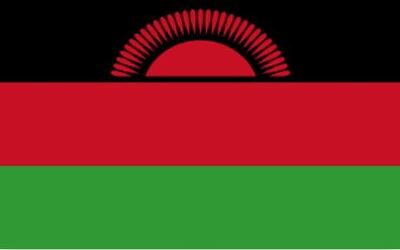Existing National Soil Partnership
A number of countries have already established their National Soil Partnership. They include:
Brazil, Colombia, Costa Rica, Cuba, Italy, Malawi, Mongolia, Nicaragua, Philippines, Portugal, Slovakia, Slovenia, Ukraine, and Thailand.
More countries are currently in the process of establishing theirs.

BRAZIL
National Soil Partnership

COLOMBIA
National Soil Partnership

COSTA RICA
National Soil Partnership

CUBA
National Soil Partnership

ITALY
National Soil Partnership

MONGOLIA
National Soil Partnership

MALAWI
National Soil Partnership

NICARAGUA
National Soil Partnership

PHILIPPINES
National Soil Partnership

PORTUGAL
National Soil Partnership

SLOVAKIA
National Soil Partnership

SLOVENIA
National Soil Partnership

THAILAND
National Soil Partnership

UKRAINE
National Soil Partnership
What is a National Soil Partnership?
A National Soil Partnership (NSP) comprises all interested and active partners in a country willing to contribute to the achievement of sustainable soil management under the framework of the Global Soil Partnership (see section 4 of the GSP Terms of Reference).
Structural and governance arrangements
Structural and governance arrangements
NSPs may not necessarily mirror the more elaborate arrangements applying to the GSP as a whole. However, it is expected that the National Soil Partnership would actively interact with the Regional Soil Partnership (RSP) that corresponds to it geopolitically, and ultimately with the Global Soil Partnership, and should therefore align its action and implementation plans with those operating at the higher level. In light of the experience accrued so far in several countries, a recommended approach – at least at the initial stages – could include the following elements:
- Selection of a Secretariat of the NSP (governmental entity or institution) to provide a modicum of secretariat support services. Partners participating in the NSP may agree on an eventual rotation formula for such functions, with well-defined time frames;
- Appointment of a Steering Committee and Chairperson. The Steering Committee would be tasked to provide strategic direction to the NSP, advise the Chairperson in connection with decision-making on important operational steps, and actively work on the mobilization of financial resources for the partnership. The Chairperson could belong to one of the most representative national institutions with interest in soils. The Chairperson should be ready to participate at sessions of the RSP to which the NSP belongs to and if at all possible at sessions of the GSP Plenary Assembly to report on national activities.
- Working groups related to the five GSP Pillars, may be set up to develop and implement the National Implementation Plan (IP), and contribute to the regional and global IPs.
- Plenary Meetings embracing all NSP partners can be organized on a regular basis or as needed. Plenary meetings should focus on significant NSP developments, needs, challenges and opportunities. If possible, they should be organized “back-to-back” with other important national meetings directly or indirectly related to soils, in order to justify their cost and work pressure. Plenary meetings should be organized and held only if a minimum number of participants is reached. Otherwise, e-mail based consultation methods should be preferred and conversation records should be kept.
Main functions and operational tasks of the NSPs
Main functions and operational tasks of the NSPs
- To catalyze cooperation within the country and in the region. This includes facilitating interactive consultative processes involving a range of national entities and stakeholders;
- To discuss and provide guidance on national goals and priorities as regards soils, and the required implementation mechanisms, including regular reviews of progress in reaching common objectives and targets;
- To facilitate the development and implementation of the National Implementation Plan in line with the Implementation Plan for the five Pillars of Action of the corresponding RSP and the GSP;
- To promote the launch of education and awareness raising campaigns on soil;
- To promote the establishment and implementation of legal frameworks on soil in the country;
- To facilitate communication on soil at the national level. This may include the development and maintenance of a NSP website;
- To facilitate the organization of capacity building events from a financial, technical and logistic point of view;
- To advocate for the implementation of the revised World Soil Charter and Voluntary Guidelines for Sustainable Soil Management, as well as other policy instruments promoted by the GSP;
- To mobilize financial resources to implement National Implementation Plans and to provide technical and financial support to the implementation of the activities at country level;
- To monitor outcomes and effectiveness of the activities implemented;
- To maintain the RSP and GSP Secretariats informed on national activities on soil.
How to establish a National Soil Partnership?
1. Conduct an inventory of all relevant stakeholders in the country
2. Organize a meeting of key stakeholders for:
- Identifying national priority actions considering those identified on the RSP and the GSP Plan of Actions and IPs
- Agreeing on the establishment and structure of the NSP: selection of the Secretariat, steering committee, chairperson and pillar chairs and working groups
- Drafting NSP implementation plan (IP)
3. Jointly finalize and implement the IP.
